By Diane Weidner, Steinberg Centre for Simulation and Interactive Learning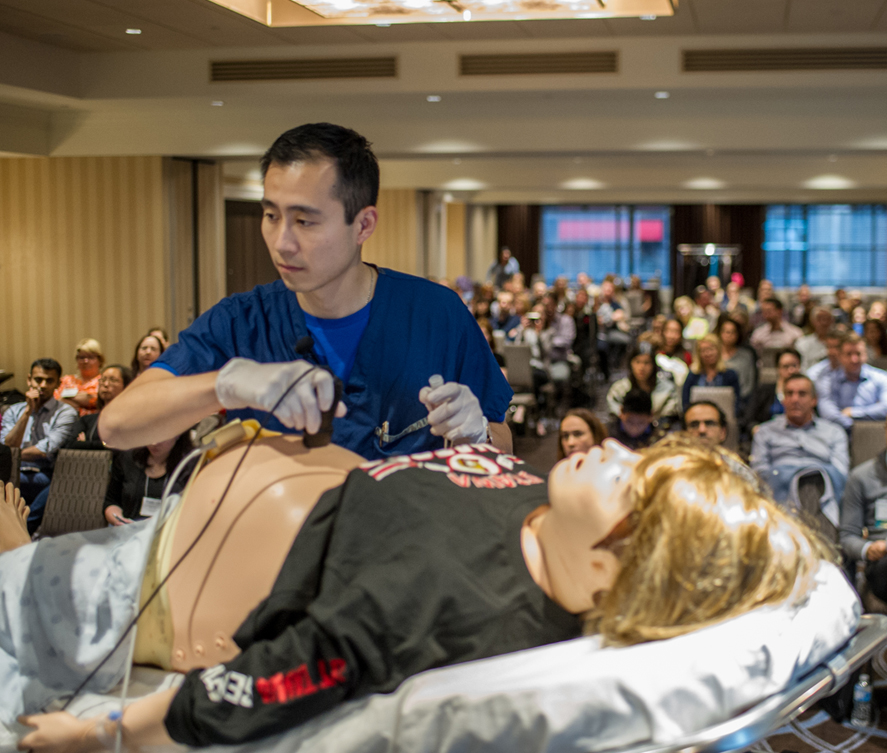
Simulation Summit 2017 celebrated its 10th anniversary in Montreal on November 1 and 2, 2017 with the largest attendance in the summit’s history. This interprofessional medical simulation education conference, organized by the Royal College of Physicians and Surgeons of Canada (Royal College) and hosted by McGill University and the Steinberg Centre for Simulation and Interactive Learning (SCSIL), brought together close to 400 simulation educators, researchers, health care professionals and others engaged in the field of simulation.
The theme for this year’s summit centred on the use of Simulation for Health Systems, Care and Quality. Featuring dynamic plenary speakers, over 20 workshops and over 60 research presentations, the conference provided a unique opportunity to learn, train and network alongside professionals from different institutions and disciplines. The two-day conference ended with SimTrek, a theatre-based simulation and debriefing exercise organized by Dr. Glenn Posner from the University of Ottawa that united multidisciplinary teams from Université de Montréal and McGill University.
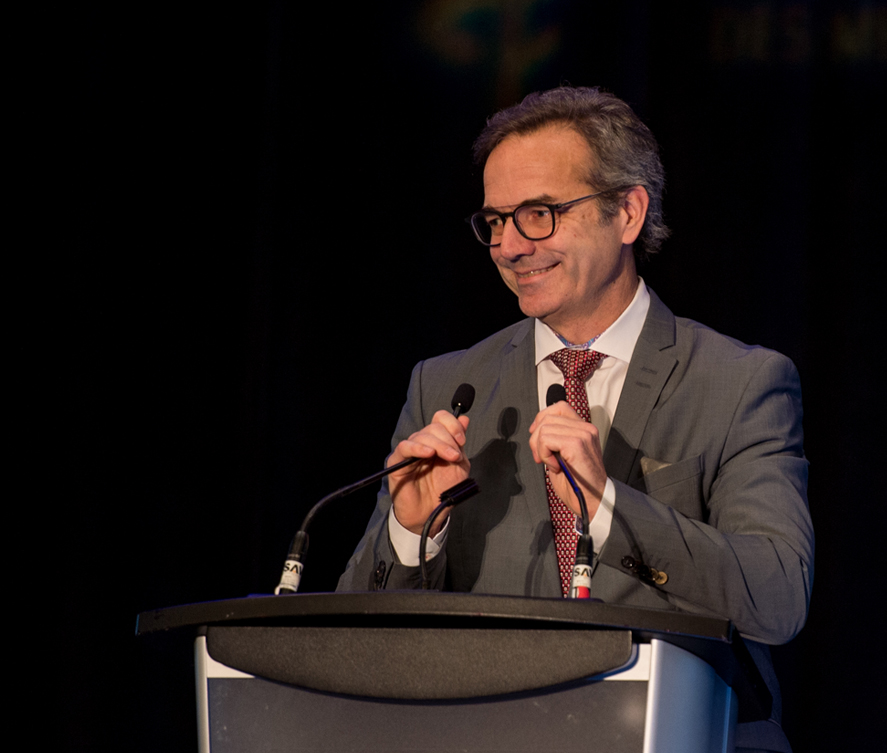
McGill presence at the conference was strong, with our faculty members, residents and researchers assuming prominent roles in the dynamic workshops, research presentations and plenary sessions. “The conference was an absolute success and I would like to extend my thanks to you all for attending in great numbers and for supporting the conference,” remarked Dr. Kevin Lachapelle, Co-Chair of Simulation Summit 2017 and Interim Director, SCSIL.
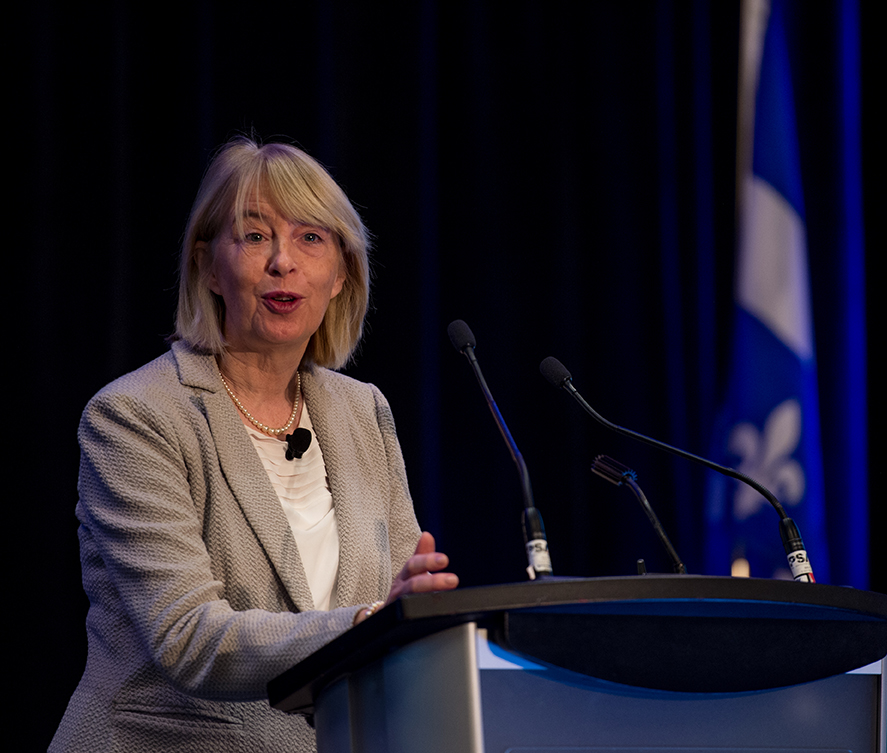
Dr. Susan Brien, Chair of Simulation Summit 2017 and Director of Practice and Systems Innovation at the Royal College welcomed the delegation to the opening plenary and introduced Dr. Rhona Flin, Professor of Industrial Psychology at Aberdeen Business School, Robert Gordon University and Emeritus Professor of Applied Psychology at the University of Aberdeen. Dr. Flin explored how leadership styles and team behaviours inform culture and safety in the workplace, and emphasized that institutional culture is completely dependent on institutional leadership; thus, a hospital culture geared towards patient safety needs to come from leadership.
The “Simulation and Innovation” plenary panel session focused on opportunities for innovation in simulation-based education. CAE
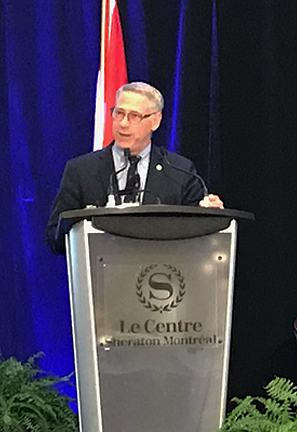
Healthcare President Dr. Robert Amyot took part in this discussion, along with McGill faculty members Dr. Farhan Bhanji, Associate Professor of Pediatrics and Dr. Jake Barralet, Director of Research in Orthopaedic Surgery, who explored the relationship between technology, safety and clinical innovation. Dr. Susanne Lajoie, Professor at the McGill Centre for Medical Education, discussed the relationship between learning and emotions, reminding us that simulation creates uncertainty and suspense which leads to engaged learners.
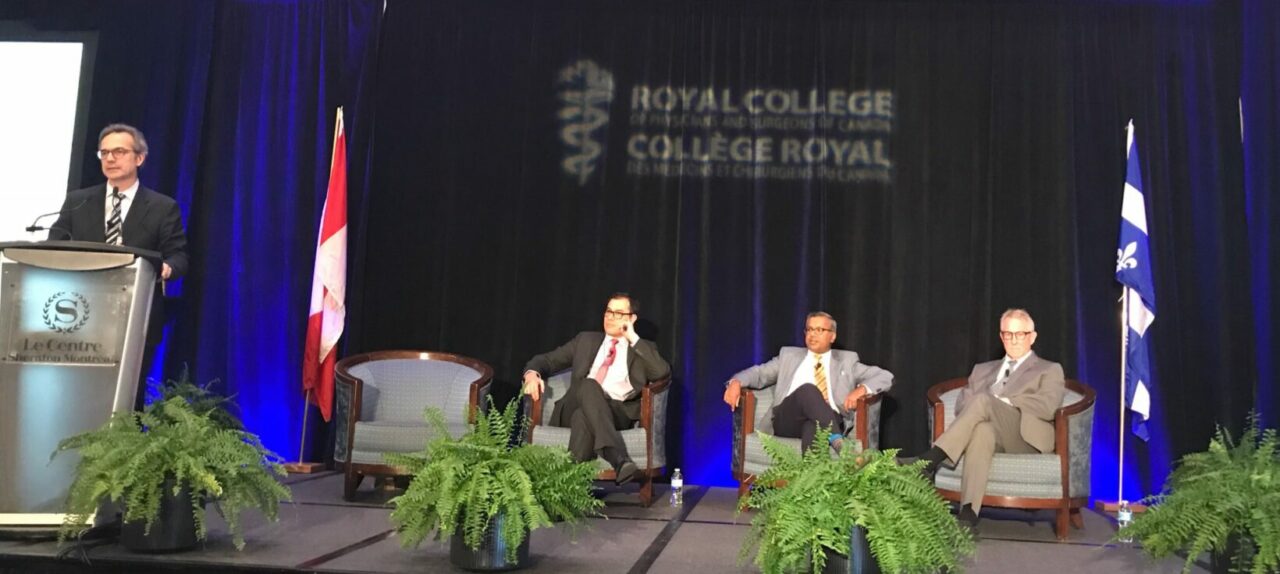
At the closing plenary, “Simulation-based assessment for competency: In the eye of the beholder,” Dr. Lachapelle was joined by Dr. Carlos Gomez-Garibello, assistant professor at the Faculty of Medicine and a core member of the Centre for Medical Education at McGill University, Dr. Viren Naik, Director of Assessment for the Royal College, and Dr. Randolph Steadman, Professor and Vice Chair for Education, Department of Anesthesiology and Perioperative Medicine at UCLS Health. This sessions focused on the role of simulation-based assessment to determine competency and discussion of some of the challenges and opportunities this presents.
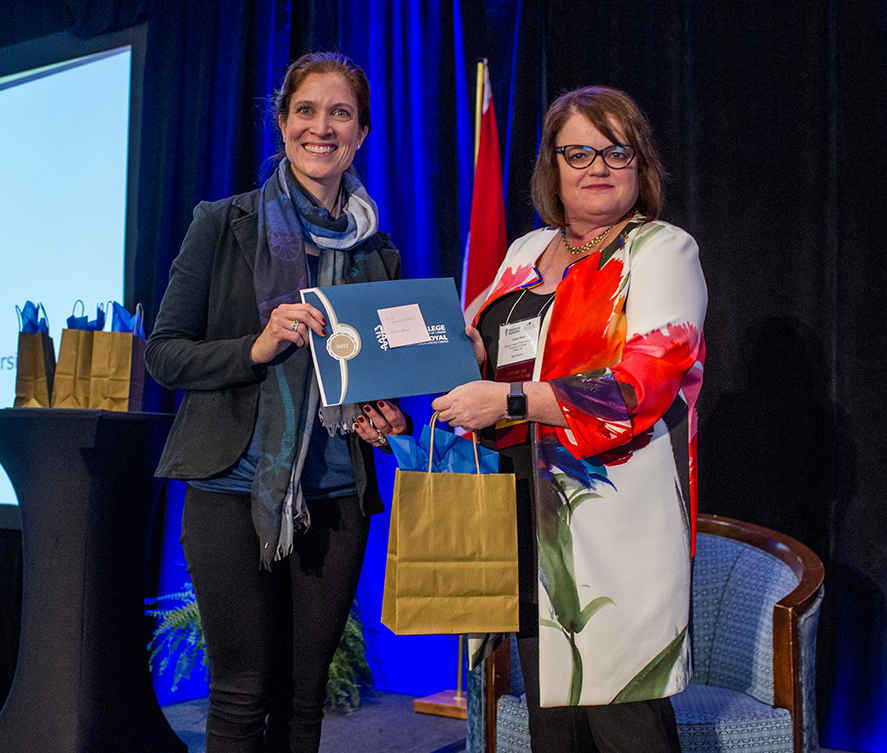
The Simulation Summit 2017 Best Presentation Award was bestowed upon Dr. Ilana Bank, Assistant Professor of Pediatrics at McGill University, for her presentation, “A trauma patient’s journey: From arrival to disposition.” The award was judged by a panel appointed by the Simulation Summit Scientific Planning Committee based on the following criteria: impact on the field of simulation, scientific merit, and communication. “A polytrauma patient requires a team of skilled interprofessional and interdisciplinary members who can work together to ensure effective, efficient and complete care throughout their trajectory of care,” explained Dr. Bank. “Building a simulation that traces the natural trajectory of a trauma patient from arrival to disposition allows for not only effective team training, but also for explicit investigation of potential areas for practice improvement and patient safety interventions. We believe simulations support team training by allowing participants across multiple physically diverse practice areas to better appreciate the roles, responsibilities and patient safety issues inherent in the management of complex trauma patients.” The research was conducted in conjunction with McGill colleagues Drs. A. Bernstein, R. Baird, A. Bretholz, L. Nguyen, R. Fisher, C. Paquet and M. Young.
A hearty congratulations also goes to Justine Garcia, PhD candidate in Mechanical Engineering at McGill University, who was one
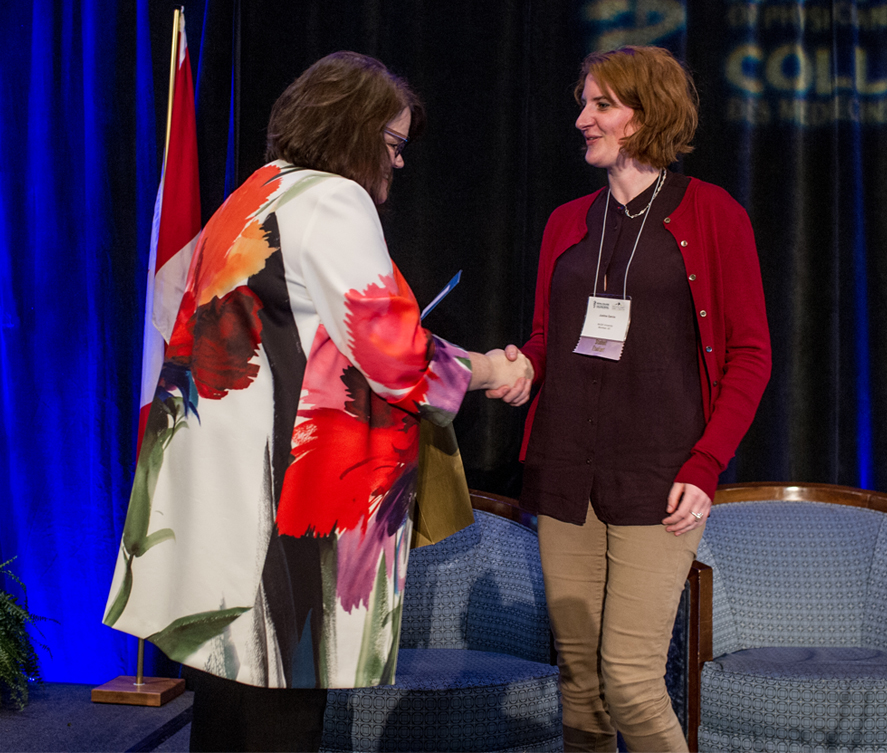
of the recipients of the Simulation Summit 2017 Research Award for her research poster, “Simulated aortic tissue using 3D printed multi-material composites.” As Justine explains, “Physical simulators are an integral part of cardiac surgical training for residents. The aortic simulators currently used in surgical education lack patient specific pathologies and/or are made of non-realistic materials, which is why we developed new 3D printed models that have both tissue and anatomic fidelity. We focused our study on the thoracic ascending aorta because it is often involved in open heart surgeries. The next step would be to validate our models with a large sample of cardiac surgeons.” This innovative research was conducted as part of the NSERC’s Collaborative Research and Training Experience (CREATE) program, which provides a unique opportunity for surgeons, scientists, engineers and business students to work together to improve patient care through needs-based clinical innovation.
It was very energizing to see so many people who are passionate about health care and simulation come together and share their expertise. Mark your calendars for Simulation Summit 2018, which will take place in Ottawa on September 28 and 29, 2018.
November 14, 2017
